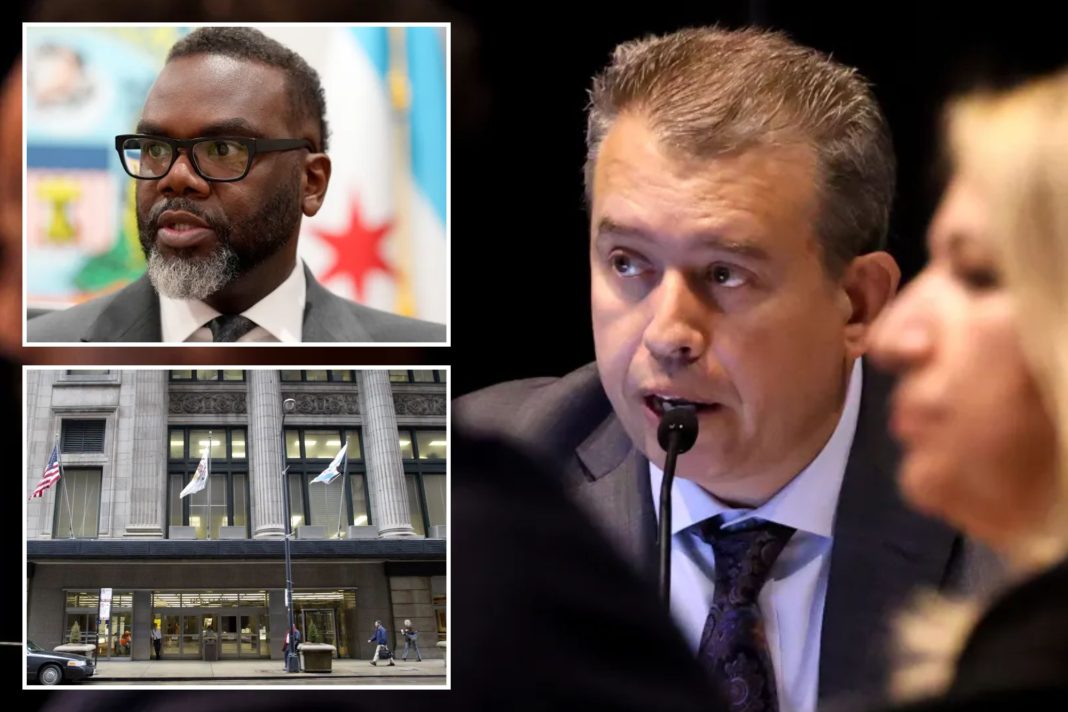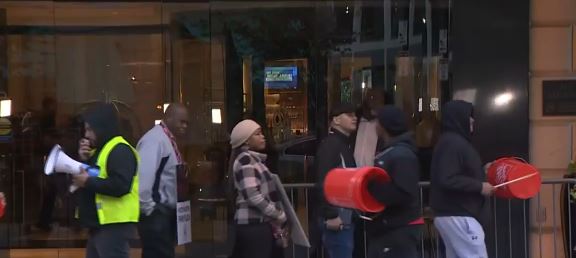In a surprising turn of events, the entire Chicago Board of Education has opted to resign, a move that underscores deepening tensions between the board and Mayor Brandon Johnson’s administration. This decision comes on the heels of allegations that the mayor’s office attempted to pressure board members into dismissing Chicago Public Schools (CPS) CEO Pedro Martinez during sensitive contract negotiations with the Chicago Teachers Union (CTU).
According to sources, the board’s members were reportedly frustrated by the mayor’s push for them to approve a high-interest, short-term loan intended to address a looming budget shortfall and secure a new contract for teachers. Alderman Andre Vasquez, representing the 40th Ward, voiced his concerns on social media, stating, “It would be disappointing and irresponsible for Mayor Johnson to push for such a risky move just to lower the city’s own deficit.” His remarks reflect a broader sentiment among critics who view the mayor’s actions as lacking in progressive values and accountability.
Earlier this week, in response to the unfolding drama, Mayor Johnson downplayed his involvement, asserting, “I didn’t ask anybody to do anything.” He emphasized the importance of leadership committed to investing in the future of Chicago’s children, a sentiment echoed in a subsequent statement from his office. It noted that the mayor and the current board are working on a transition plan, as a new hybrid board—consisting of both appointed and elected members—is set to take office in January.
The CTU has also weighed in on the situation, describing the resignations as symptomatic of the “latest instability caused by the CEO in our district.” Their statement indicates a clear alignment with the mayor’s vision for a transformed school system that prioritizes stability and quality education. “We finally have a mayor that is moving the district away from cuts and furloughs,” the union asserted, suggesting that Martinez has been an impediment to progress.
Martinez himself has been vocal about his opposition to short-term borrowing, previously highlighting in a column for the Chicago Tribune that such practices have historically led to negative bond ratings for CPS. He warned that continuing down this path could result in further financial instability for the district, a concern that resonates with fiscal experts who argue that short-term fixes can lead to long-term fiscal challenges.
As the mayor prepares to announce seven new appointments to replace the outgoing board members, there are concerns about the future direction of the board. Alderman Anthony Beale, a vocal critic of Mayor Johnson, expressed skepticism over the mayor’s potential appointees. He fears they might form a “rubber-stamp” board, more inclined to acquiesce to the CTU’s demands rather than advocate for a balanced approach that considers the needs of all stakeholders in the educational landscape.
This unfolding saga not only highlights the pressures faced by public education leaders but also raises critical questions about governance and accountability in one of the nation’s largest school districts. With the imminent shift to a hybrid board structure, the stakes are high for both the administration and the future of Chicago’s educational system. The community awaits to see how these changes will impact not only the operational framework of the CPS but also the quality of education that students receive in the coming years.
As this situation continues to evolve, it serves as a reminder of the complexities involved in educational governance, particularly in urban settings where the intersection of politics, policy, and community needs is ever-present. The future of Chicago’s schools hangs in the balance, and the decisions made in the coming weeks will undoubtedly shape the educational landscape for years to come.

